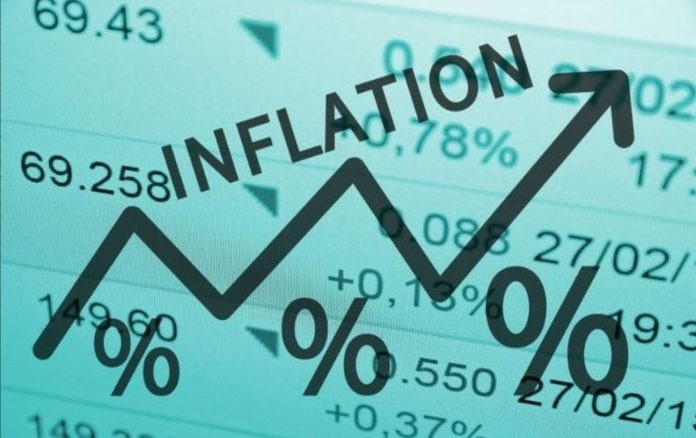Inflation is an important economic concept that affects the purchasing power of money over time. It refers to the general increase in prices of goods and services in an economy, leading to a decrease in the value of money. While a moderate level of inflation is considered healthy for economic growth, high inflation does not only affect overall cost of living but can also erode the value of savings and investments.
Understanding Inflation
Inflation is measured by the Consumer Price Index or CPI, which is a basket of goods and services that are commonly purchased by consumers. The CPI is calculated by tracking the prices of these goods and services over time. The annual inflation rate is the percentage change in the CPI from one year to the next.
Causes of Inflation
- Increases in the money supply: When the government prints more money, it can lead to inflation. This is because the increased supply of money drives up demand for goods and services, which in turn pushes up prices.
- Increases in production costs: When the cost of producing goods and services goes up, it can lead to inflation. This is because businesses pass on these increased costs to consumers in the form of higher prices.
- Changes in supply and demand: Inflation can also be caused by changes in supply and demand. For example, if there is a sudden increase in demand for a particular good or service, but the supply of that good or service remains the same, prices will go up.
The Impact of Inflation on Savings
Savings Accounts
Traditional savings accounts in Australia typically offer relatively low-interest rates. If the interest earned on a savings account does not outpace the inflation rate, the real value of the savings decreases over time. For instance, if the inflation rate is 2% and the savings account only earns 1% interest, the purchasing power of the savings effectively decreases by 1% annually.
Money Market Accounts
Money market accounts in Australia generally offer higher interest rates than traditional savings accounts. However, during periods of inflation, it can still be challenging for money market accounts to outpace or keep up with rising prices. It’s crucial to compare the interest rates offered by money market accounts with the prevailing inflation rate to assess their impact on purchasing power.
Certificates of Deposit (CDs)
Certificates of Deposit, or term deposits, often provide higher interest rates than regular savings accounts. However, they have fixed terms, and the interest rates may not adjust to inflation during the deposit period. If the inflation rate surpasses the interest rate earned on a CD, the real value of the savings will decline throughout the deposit.
The Impact of Inflation on Investment Returns
Stocks
Stocks represent ownership in companies. Inflation can affect stocks in various ways. On the positive side, some companies may be able to increase prices to match inflation, leading to higher revenues and potentially higher stock prices. However, inflation can also increase production costs, impacting profitability. Additionally, inflation may lead to higher interest rates, making borrowing more expensive for companies and potentially impacting their earnings. Overall, stocks have historically provided a potential hedge against inflation over the long term due to their potential for capital appreciation and dividend growth.
Bonds
Inflation can have adverse effects on bonds, particularly if the interest rate on the bond does not keep pace with inflation. When inflation rises, the purchasing power of future interest and principal payments decreases. Consequently, the market demand for existing bonds with lower interest rates decreases, leading to a drop in bond prices. However, certain bonds are specifically designed to protect against inflation by adjusting their principal value based on changes in the inflation rate.
Real Estate
During inflationary periods, real estate values may increase, allowing investors to preserve or even grow their purchasing power. Rental income from real estate investments can also be adjusted to keep pace with inflation, providing a reliable income stream. However, it’s important to note that real estate performance can vary depending on location, market conditions, and other factors.
Strategies for protecting your wealth from inflation
- Diversify Your Portfolio: Spread your investments across different asset classes such as stocks, bonds, real estate, and commodities. Different assets have varying responses to inflation, and diversification helps reduce the overall impact of inflation on your portfolio.
- Invest in Inflation-Protected Securities: Inflation-protected securities, such as Treasury Indexed Bonds (TIBs), adjust their returns based on changes in the inflation rate. These securities can provide a reliable hedge against inflation and help preserve the purchasing power of your investments.
- Consider Real Estate Investments: Rental income from real estate investments can be adjusted to keep pace with inflation, providing a reliable income stream. Additionally, real estate values may increase during inflationary periods, helping to preserve or grow your purchasing power.
- Invest in Stocks: Historically, stocks have shown the potential to outpace inflation over the long term. Look for companies with strong fundamentals, pricing power, and the ability to adjust prices to match inflation.
- Review and Adjust Savings Strategies: For savings, consider high-yield savings accounts or money market accounts that offer competitive interest rates. Regularly review the interest rates and fees associated with your savings accounts to ensure they are keeping up with or surpassing the inflation rate. Consider switching to accounts that provide better returns if necessary.
- Maintain an Emergency Fund: Inflation can affect the cost of living and unexpected expenses. It’s important to have an emergency fund that can cover several months’ worth of living expenses. This fund provides a buffer against inflationary pressures and helps you avoid dipping into long-term investments during emergencies.
- Stay Informed and Adapt: Keep yourself updated on inflation trends, economic indicators, and policy changes that may impact inflation. Regularly review and adjust your investment and savings strategies to align with changing market conditions. Consider consulting with a financial advisor who can provide guidance tailored to your specific financial goals and circumstances.
Disclaimer: This article contains sponsored marketing content. It is intended for promotional purposes and should not be considered as an endorsement or recommendation by our website. Readers are encouraged to conduct their own research and exercise their own judgment before making any decisions based on the information provided in this article.




































































